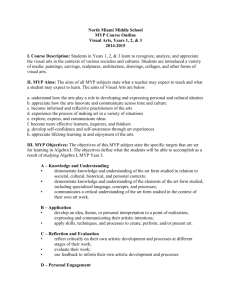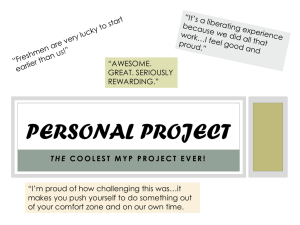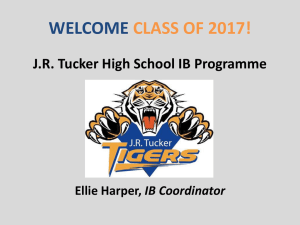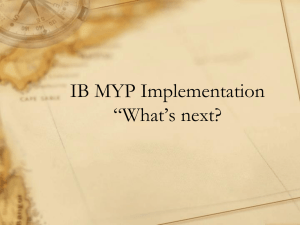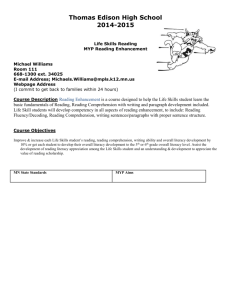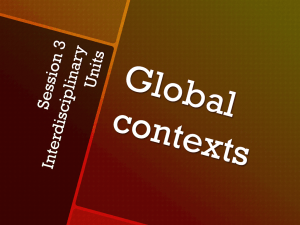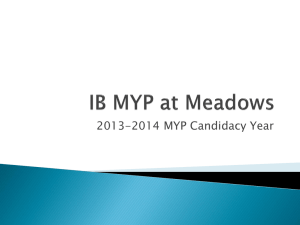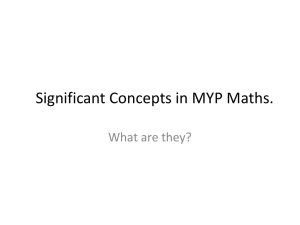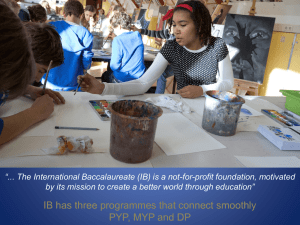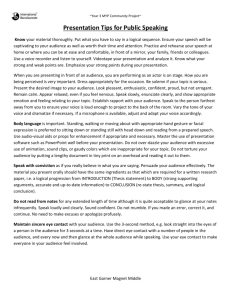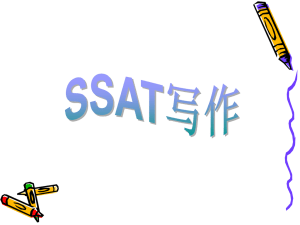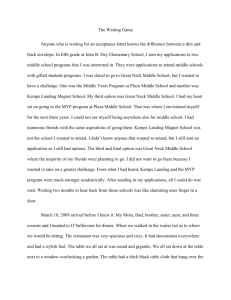Partially meets - Edison High School
advertisement
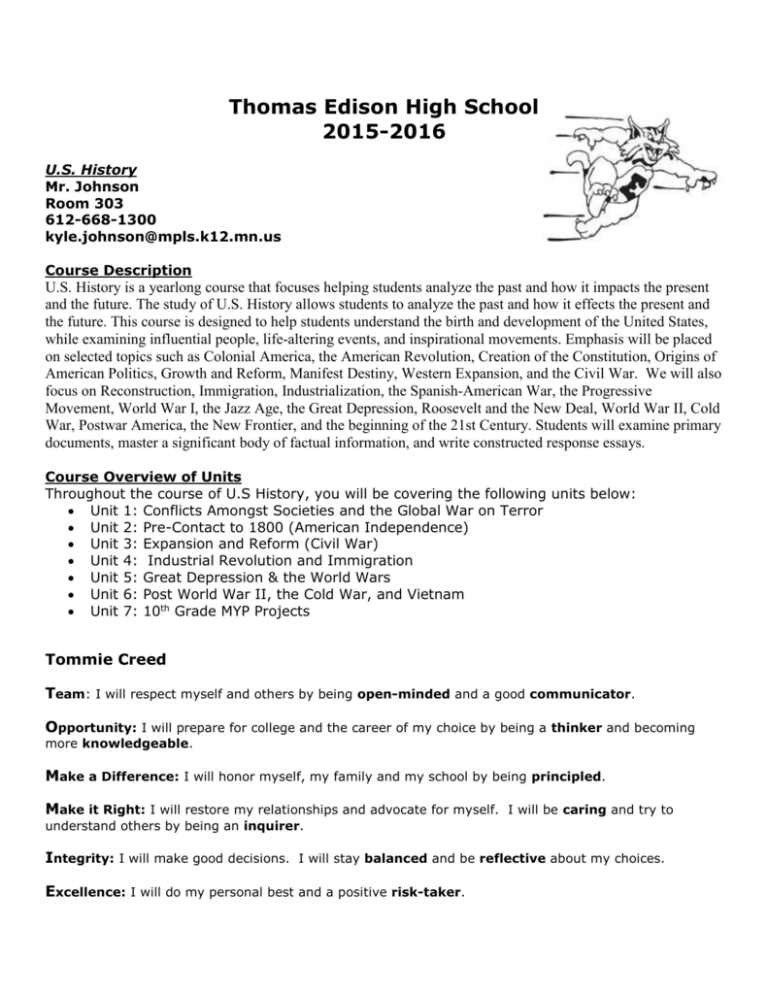
Thomas Edison High School 2015-2016 U.S. History Mr. Johnson Room 303 612-668-1300 kyle.johnson@mpls.k12.mn.us Course Description U.S. History is a yearlong course that focuses helping students analyze the past and how it impacts the present and the future. The study of U.S. History allows students to analyze the past and how it effects the present and the future. This course is designed to help students understand the birth and development of the United States, while examining influential people, life-altering events, and inspirational movements. Emphasis will be placed on selected topics such as Colonial America, the American Revolution, Creation of the Constitution, Origins of American Politics, Growth and Reform, Manifest Destiny, Western Expansion, and the Civil War. We will also focus on Reconstruction, Immigration, Industrialization, the Spanish-American War, the Progressive Movement, World War I, the Jazz Age, the Great Depression, Roosevelt and the New Deal, World War II, Cold War, Postwar America, the New Frontier, and the beginning of the 21st Century. Students will examine primary documents, master a significant body of factual information, and write constructed response essays. Course Overview of Units Throughout the course of U.S History, you will be covering the following units below: Unit 1: Conflicts Amongst Societies and the Global War on Terror Unit 2: Pre-Contact to 1800 (American Independence) Unit 3: Expansion and Reform (Civil War) Unit 4: Industrial Revolution and Immigration Unit 5: Great Depression & the World Wars Unit 6: Post World War II, the Cold War, and Vietnam Unit 7: 10th Grade MYP Projects Tommie Creed Team: I will respect myself and others by being open-minded and a good communicator. Opportunity: I will prepare for college and the career of my choice by being a thinker and becoming more knowledgeable. Make a Difference: I will honor myself, my family and my school by being principled. Make it Right: I will restore my relationships and advocate for myself. I will be caring and try to understand others by being an inquirer. Integrity: I will make good decisions. I will stay balanced and be reflective about my choices. Excellence: I will do my personal best and a positive risk-taker. MYP Fundamental Concepts Throughout the year, our curriculum will support the three underlying principles of the I.B. Middle Years Programme: inquiry, action, and reflection. We will ask questions about math and the world around us, apply math in our community, and think deeply about what and how we are learning. MYP Global Contexts You will be learning U.S. History through six Global Contexts. The Global Contexts give meaning to what is learned through the exploration of real-world problems. Through inquiry and active learning, you will use higher-order thinking skills to deepen comprehension and reflection to better understand yourself as a learner. Identities and relationships: Explore identity; beliefs and values; personal, and physical, mental, social and spiritual health. Also, look at human relationships, communities and cultures. Think about what it means to be human. Orientation in space and time: Explore turning points in humankind from discoveries and explorations to the relationships between individuals and civilizations. Do this through different perspectives, not just yours, but also others in Minneapolis, the U.S, and the world. Personal and cultural expression: Explore the different ways that we discover and express ideas and feelings on everything from nature to culture. Think about all the different ways that we reflect on and enjoy our human creativity, and our appreciation of “beauty.” Scientific and technical innovation: Explore the relationship between people and the natural world and the impact of scientific/technological advances on communities and environments. Also think about the impact of environments on human activity; how do we adapt? Globalization and sustainability: Explore human-made systems and communities; and how our local experiences at home affect the whole world. Reflect on the positive and negative effects of world “interconnectedness.” Is it sustainable? Will it last? Fairness and development: Explore rights and responsibilities, especially the relationship between different communities around the world. Do we share what we have with other people? With other living things? Can we all achieve equal opportunities and peace? Identities and Relationships Who am I? Who are we? Orientation in Space and Time What is the meaning of “where” and “when”? Personal and Cultural Expression What is the nature and purpose of creative expression? Scientific and Technical Innovation How do we understand the world in which we live? Globalization and Sustainability How is everything connected? Fairness and Development What are the consequences of our common humanity? Resources Students will need to access MyMPS or Mr. Johnson’s website on Edison’s homepage to look at assignments, calendars, study guides, and other important information. What to Bring to Class Binder with all material (MUST HAVE IT WITH YOU EVERY SINGLE DAY!) Something to write with Grading Policy Please refer to the Thomas Edison Student Handbook for our school-wide assessment policy. Grades will directly reflect achievement of academic standards. 80% of your grade in this class will be based on your academic achievement on learning targets and MYP assessment Criteria. 20% will be based on academic practice, such as homework and other things you do to get ready to show your learning. Grading Breakdown 80% Assessments/Learning Targets Learning targets are based on MN state standards and aligned to MYP assessment criteria. You will have several opportunities to demonstrate your comprehension of each learning target throughout the unit. These opportunities will include tests, quizzes, projects, class work, and additional assessments. Learning targets will be graded using the rubric shown: Score MCA Terms Description Got it and more! 7-8 EXCEEDS 5-6 MEETS 3-4 PARTIALLY MEETS 1-2 DOES NOT MEET Excellent, exceptional, extended Got it! Consistent, accurate Kinda got it! Basic, simple, inconsistent Don’t get it! Developing, limited, partial Didn’t do it! 0 Unacceptable, inaccurate, insufficient evidence 20% Academic Practice These activities allow you to become proficient with the learning targets. These activities include homework, group work, and individual class work. To be successful in this class, completing homework assignments is a necessity. Rubric Score Comparison of Rubric Grading to Grade Scale Description Grade Scale Letter grade 7-8 (87.5%) Exceeds/Exemplary 91-100 % A 6 (75%) Meets 87-90 83-86 AB+ 5 (62.5%) Meets 79-82 75-78 71-74 B BC+ 4 (50%) Partially meets 67-70 63-66 59-62 C CD+ 3 (37.5%) 2 (25%) 1 (12.5%) 0 Partially meets 55-58 50-54 0-50 D DF Attempted/ Does not meet Not attempted If you do not complete any of the academic achievement assessments, you will receive an incomplete (I) for the quarter. You must show evidence of proficiency in order to get a grade for the course. After mid-quarter of the following quarter, any unresolved incompletes will become F’s and result in no credit. Attendance and Tardy Policy: Please refer to the Thomas Edison Student Handbook Academic Honesty Policy Please refer to the Thomas Edison Student Handbook. Classroom Conduct Expectations Behave like a young adult and we won’t have any issues, if not then the proper actions will be taken: one-onone teacher conversations, detentions, deans, phone calls home, etc…
